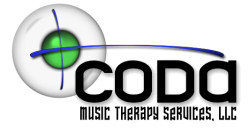The American Music Therapy Association defines music therapy as “the clinical and evidence-based use of music interventions to accomplish individualized goals within a therapeutic relationship by a credentialed professional who has completed an approved music therapy program.”
Research has shown music therapy to be effective with all ages and within a variety of populations, including: *
– children and adults with developmental disabilities
– individuals with Autism Spectrum Disorders
– individuals with Williams Syndrome
– mental health
– infants, including those within the neonatal intensive care unit
– young children
– special education
– medical settings, such as those experiencing pain, going through physical rehabilitation, and/or cancer treatment
– individuals with traumatic brain injury and/or stroke
– older adults, including those with Alzheimer’s/dementia
– hospice and/or palliative care
– individuals who have experienced trauma
– substance abuse treatment
– forensic and/or correctional facilities
– wellness programs
Music therapy interventions may be designed to:
– improve speech and communication
– enhance cognition and memory
– express feelings
– promote physical development and rehabilitation
– alleviate pain
– manage stress
– promote wellness
Music therapy interventions may include:
– Singing
– Playing instruments
– Drumming
– Improvisation
– Music performance
– Movement to music
– Musical games/socialization activities
– Using music/song to learn and practice a skill
– Creating original compositions
– Song lyric analysis
– Music relaxation
– Music combined with another modality (e.g. art, drama)
* Links will take you to fact sheets and/or bibliographies provided by the American Music Therapy Association.
Contact CODA MTS to learn how music therapy can be used to help you or a loved one.

